Annual Meeting Corporate Workshops
Did you miss your chance to view this year's Corporate Workshops?! We are excited to announce that select Corporate Workshops are now accessible to AMP members and others in the molecular diagnostics community. Please see below for direct links to view the workshops. The workshops will be available until November 2024.
Note: Please read the privacy policy and disclaimer before viewing the workshops. In order to view the workshops, you will be required to register with your contact information and agree to be contacted by the Host Company.
Click Here to View the Corporate Workshop Program
A B C D E F G H I J K L M N O P Q R S T U V W X Y Z
.png)
Staying Ahead of the Changing HPV Testing Landscape: A 360 Degree Review
In 2020, American Cancer Society released an updated cervical cancer screening guideline calling for primary human papillomavirus (HPV) screening as the preferred strategy. Utility of HPV primary screening enables risk stratification by genotyping which leads to more effective triage and personalized care for patients. This session will review the results from the Alinity m HR HPV* clinical trial and how this test may be utilized in clinical practice. We will also review the workflow efficiencies that can be achieved when introducing an automated pre-analytical system** to HPV testing.
* Alinity m HR HPV assay is pending FDA review and not commercially available in the United States.
** Alinity mp is under development and not commercially available.
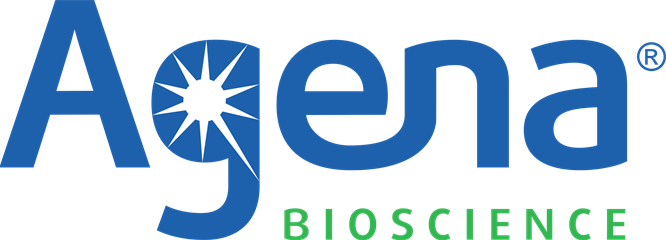
Characterizing the genetic profile of lung adenocarcinomas upon initial diagnosis has become a critical step in guiding the management and treatment of patients. The need for detection of multiple biomarkers in a single, limited diagnostic sample has driven the adoption of two complementary technologies at Houston Methodist Hospital. Dr. Jessica S. Thomas, Assistant Professor of Clinical Pathology and Genomic Medicine, will share how Methodist delivers significantly accelerated results and a higher success rate for low cellularity samples by supplementing NGS with the MassARRAY platform. She will discuss how this testing paradigm has impacted patients and key considerations for implementation.

Dr. Vicky Pratt, past president of AMP, and Prof. Ron van Schaik, past president of ESPT, have been at the forefront of the changing landscape of pharmacogenomic testing. There is increased visibility to the importance of DPYD in treatment decisions. Now, more than ever, it is imperative to understand the significance of DPYD testing in the clinical setting.
In this workshop both experts will discuss the clinical evidence, recommendations and considerations supporting DPYD testing within the United States and Europe. Attendees will gain insights into evidence-based guidelines and other resources to consider when implementing DPYD testing panels.
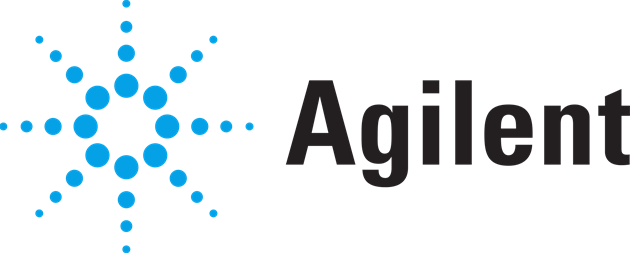
Tumor molecular characterization is key for advancing precision oncology. Two Agilent collaborators present approaches to detect somatic variants from cancer samples for large-scale data analyses. First is a whole exome sequencing method based on Agilent SureSelect technology paired with AI-driven best-in-class analytics. Utilizing this AI-driven approach enables identification of SNVs, indels, CNAs, TMB, MSI, HRD, and translocations. Second is a cost-effective method to investigate the homologous recombinant deficiency (HRD) status of solid tumor samples using the Agilent SureSelect Cancer CGP assay (targeting 679 genes). HRD status, a potential predictive biomarker for PARPi sensitivity, is demonstrated with two commercial informatics solutions.?

A Look at Current and Future Molecular Biomarkers in Locally Advanced and Metastatic Breast Cancers
The importance of molecular Biomarkers in Breast Cancer, current molecular biomarkers in HR+/HER2- mBC, and emerging molecular biomarkers in HR+/HER2- mBC.
• Appreciate the science and clinical applications of using molecular biomarkers to manage patients with breast cancer
• Recognize the current and emerging biomarkers that may influence clinical decision-making for patients with advanced breast cancer based on their prognostic and/or predictive value
• Understand the PI3K/AKT/PTEN pathway and its importance in HR+/HER2- metastatic breast cancer

Optimizing Biomarker Testing in Resectable and Metastatic NSCLC: A Multidisciplinary Approach
This program will illustrate key best practices and new developments for biomarker testing in the care of patients with resectable and metastatic non-small cell lung cancer (NSCLC). The presentation will highlight the importance of multidisciplinary team (MDT) coordination and its crucial role toward implementing best practices in sample collection. Latest biomarker testing guidelines, evolving biomarkers, and recommendations for liquid biopsy integration in metastatic NSCLC will also be reviewed. Specifically, the speakers will discuss:
• Implications of quality tissue acquisition for precision medicine
• Best practices for specimen management and biomarker testing
• Best practices for maximizing efficient patient identification

The clinical relevance of ESR1 mutations and review of data supporting serial ctDNA monitoring to detect the emergence of ESR1 mutations (eg, from PADA-1). The comparison of different testing methods for ESR1 mutations and their benefits/drawbacks.
• Appreciate the science and clinical applications of using ESR1 mutations as the dynamic biomarker to manage patients with metastatic breast cancer
• Review data supporting ctDNA-mediated serial ESR1m monitoring, thereby identifying molecular progression before radiological progression of the disease, leading to a change in disease management
• Discuss current and upcoming technologies for testing molecular biomarkers in metastatic breast cancer, including ESR1 mutations
.png)
The QuantideX qPCR BCR-ABL IS (IVD) and Minor (RUO) Kits, as well as the upcoming qPCR PML-RARA Kit (RUO)**, provide highly sensitive and scalable methods for detection and quantification of MRD involving these fusions, allowing for molecular laboratories big and small to implement such tests using widely available qPCR equipment. In this corporate workshop, we will review the key features and attributes of these assays and will describe key performance data illustrating why QuantideX is the portfolio of choice for highly sensitive detection of leukemic fusions.
.png)
AmplideX PCR/CE FMR1 kit has become the gold standard for FMR1 analysis. In the last few years, Asuragen has expanded the applications of AmplideX chemistry to other repeat disorder genes (e.g. C9orf72), copy number assays (SMN1/2), and highly multiplexed variant detection (CFTR). This workshop will highlight the experience of one clinical lab moving from assay validation through to routine testing using the AmplideX SMN1/2 Plus Kit. This kit provides the SMN1 and SMN2 copy numbers and detects variants associated with gene duplication and milder disease phenotype, all in one reaction with a simple, scalable, and streamlined workflow with analysis software.
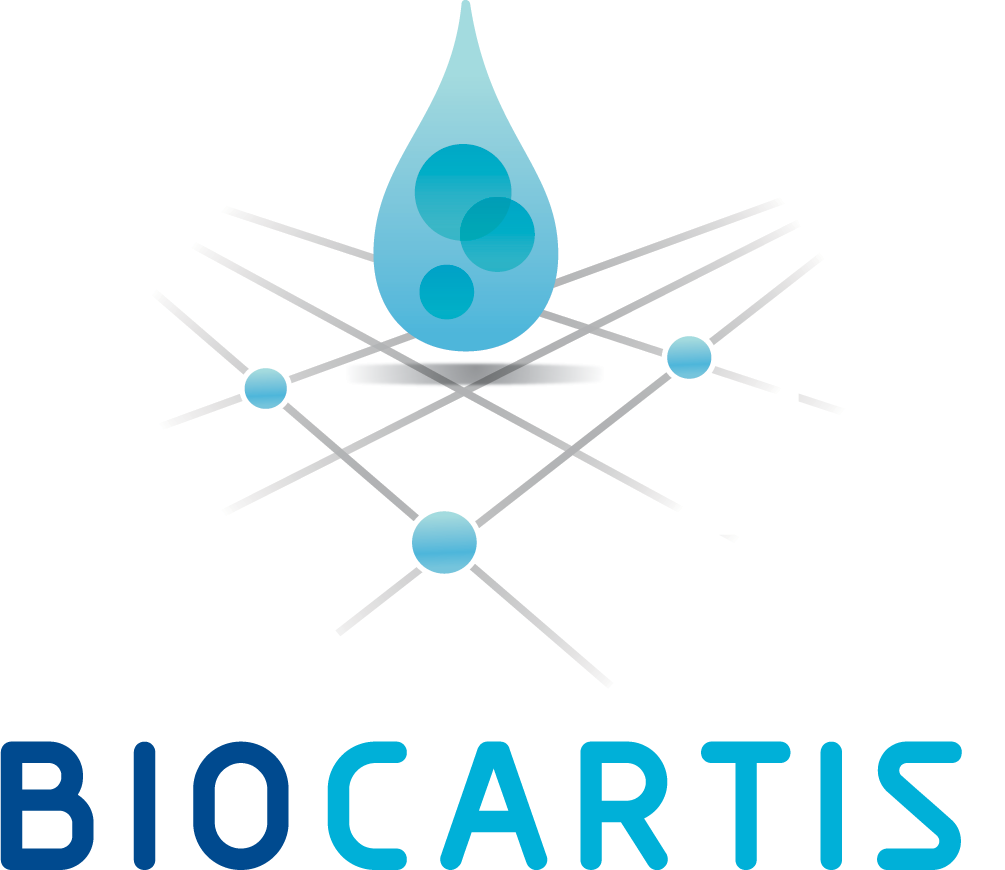
Expedite Patient Management Decisions with RAPID Molecular Tests
This workshop will reflect on how we, as a community, can expedite patient management decisions through personalized medicine and specially via a diversification of molecular tests within the clinical setting. Today’s challenges in providing timely molecular results to enable fast decisions on diagnosis, therapeutic management will be discussed. Furthermore, the MSKCC Clinical Pathology Team will present an example where the implementation of a fully automated system to enable ultra-rapid assessment of IDH1/2 hotspot mutation status on various sample types without the need for prior DNA extraction enabled rapid and accurate identification of actionable biomarkers in hematologic malignancies and solid tumors.
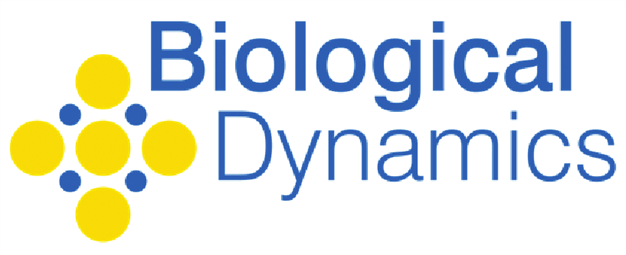
New Frontiers in Diagnostics: Simplifying High Purity Exosome Isolation with the ExoVerita™ Pro
Extracellular vesicles, including exosomes, are cell-to-cell communication tools representing active tissues. Thus, exosomes offer the opportunity to intercept messages related to disease status. We will discuss how our automated platform, ExoVerita™ Pro, rapidly isolates highly purified exosomes from clinical samples, thereby enabling downstream analysis. The workshop will include discussion on recent results using ExoVerita Pro for early-stage cancer detection and how the system can be leveraged to empower other diagnostic applications. Attendees will have the opportunity to see and discuss the system with the developers and ask questions about how it can be used in their research.
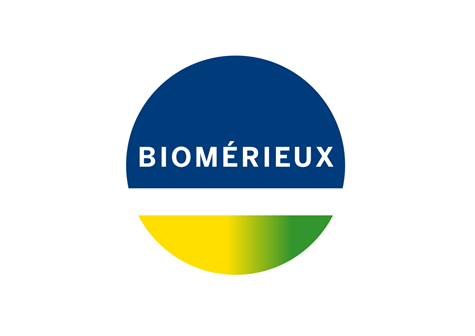
After FDA approval in 2015 and a prolonged validation in 2017 Northwell Health Laboratories (NY) implemented the BioFire FilmArray Meningitis / Encephalitis Panel (BioMérieux). Since then, over 11,800 specimens were tested over a 66-month period. A retrospective analysis was conducted, including positivity rates, classification of viral/bacterial cases, age- and gender distribution, seasonality, as well as in depth comparisons with other CSF-related tests, such as specific HSV PCR and serology tests. Selected case studies will provide insight of the sometimes very complex and unique interactions with other methodologies. Additional laboratory-specific measures are discussed, such as specimen preparation and retention, QA/QM.

Structural Variant Insights from Adult and Pediatric CNS Tumors: Powered by Optical Genome Mapping
According to ASCO’s “Cancer.Net” website, CNS tumors account for >300,000 overall cancer diagnoses worldwide and are estimated to be the second most common type of childhood cancers. When it comes to investigating the molecular bases of CNS tumors, and in particular the role of structural variants (SV), multiple technologies have been used over the past decades. However, the underlying genetic alteration remains unresolved for many samples. Therefore, there is a clear need for the application of new technologies.? In this enlightening symposium, three presenters unveil groundbreaking data from their clinical research on SVs in CNS tumors. The data was generated using Optical Genome Mapping (OGM), a method known for its comprehensive, high-resolution, and unbiased detection of SVs across the genome. As part of this session, a comparison of OGM performance to classical methods, such as microarrays, will also be presented.

Revolutionizing Cytogenomics with Optical Genome Mapping in Hematological Malignancies
Optical Genome Mapping (OGM) is emerging as a leading new method to assess the cytogenomic profile of hematological malignancies, as shown by the mounting evidence presented in peer-reviewed publications worldwide. Not only has OGM been shown to be highly concordant with classical methods in the detection of structural and numerical variants, but it has also been demonstrated to reveal multiple incremental pathogenic variants. Additionally, it is transforming lab workflows by enabling consolidation of multiple assays into a single assay.
This session will start with a brief introduction on OGM by Dr. Hastie, followed by Dr. Dubuc and Dr. Crocker presenting clinical research data generated using OGM across different types of hematological malignancies, including lymphomas, myelomas and leukemias. The session will end with Dr. Smith discussing an international working group initiative and proposed framework for standardized implementation of OGM across cytogenetic labs.

Discover Tumor Heterogeneity with Integrated Single-Cell Genomics and Transcriptomics
While bulk sequencing has transformed cancer research and therapy, we are rapidly approaching the limits of discovery with bulk sequencing of tumors. Decreasing sequencing costs, increasing throughput, and improvements in methodology are enabling researchers to move from bulk to single-cell sequencing approaches. Furthermore, new chemistries are enabling multiomic analysis in single cells. In this workshop, learn how ResolveOME, an integrated single-cell genomic and transcriptomic workflow, was used to characterize intratumoral heterogeneity in ductal carcinoma in situ cells.

We will describe a novel, comprehensive technique to profile all 7 TCR & BCR chains in a single, multiplex RT-PCR reaction as well as complementary methods for Targeted RNA-Seq and gene functional analysis using CRISPR and RNAi loss-of-function (CRISPR KO, CRISPRi, RNAi) and gain-of-function (cRISPRa) screening.
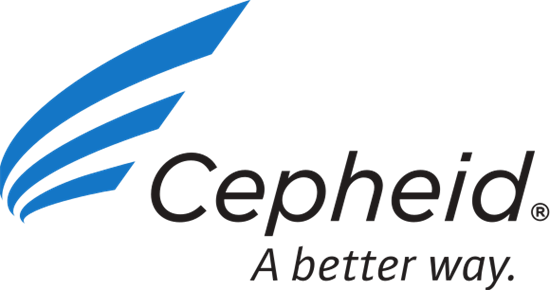
Fast and Accurate Molecular Results for Monitoring Different Types of Leukemia
Current testing options for monitoring leukemia patients are not only cumbersome, but can be expensive and time-consuming for the lab to implement. Join us to learn more about how Cepheid’s advanced Lab in a Cartridge™ technology decreases workflow complexity and hands-on time by automating the entire testing process, delivering faster results.
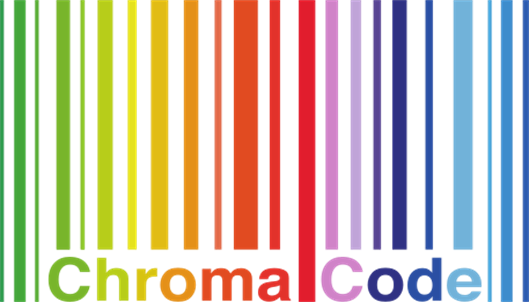
Despite technical progress, critical biomarker testing remains inaccessible due to complex workflows, high costs, and impractical turnaround times.
HDPCR addresses this unmet need using amplitude modulation to increase information content, and multi-spectral encoding to increase the specificity of dPCR assays. This enables multiplexing of unprecedented numbers of targets at high throughput and low cost per sample. Cloud based automated dPCR signal decoding and processing removes the need for computer hardware or software installation. The technology also has broad regulatory compliance.
In this workshop we will present data for oncology and genomic applications.

Molecular Cytogenomic Testing in AML: What You Might Be Missing
Cytogenetics encompasses a collection of methodologies which seek to identify large-scale (>100kb) structural alterations in the genome. With molecular advances, results from multiple different technologies are used together to diagnose and stratify patient risk for hematological malignancies. In many cases, two or more assays are required to make an accurate assessment of structural alterations because of limitations and strengths of each, slowing time to diagnosis. Here we show the utility of OncoTerra, an NGS-based cytogenomics assay with the Element Biosciences AVITI sequencing platform to improve the identification of known and novel structural genomic variants in de novo acute myeloid leukemia samples.

Achieving High Sensitivity and Concordance for CGP from “Liquid Biopsy” Specimens
Comprehensive Genomic Profiling (CGP) of whole blood “liquid biopsy” specimens from cancer patients is being performed in increasing numbers when tumor tissue is inaccessible or unavailable. The accuracy and sensitivity of circulating tumor DNA (ctDNA) assays vary greatly. Consequently, a rigorous validation including comparisons with matched tissue is critical in establishing clinical utility.
We will discuss important considerations when establishing a ctDNA CGP assay to ensure high sensitivity and concordance and share implementation challenges and proposed solutions experienced in a community-based, Integrated Network Cancer Program. We will also highlight the benefits of in-house CGP testing for both tissue and liquid.

Implementing CGP+ HRD Testing In-House in a Large US Healthcare System
Homologous recombination repair deficiency (HRD) is associated with response to poly-ADP-ribose polymerase inhibition (PARPi) therapy in advanced ovarian cancer. In combination with comprehensive genomic profiling (CGP), these analyses allow clinicians to maximize clinical information so that patients with ovarian cancer are matched with approved therapies or enrolled in relevant clinical trials.
A pathologist and laboratory director will discuss the impact of implementing a HRD assay at their institution. They will describe the details of implementing the assay, technical considerations for HRD testing, concordance with other HRD assays, and the added value of offering CGP and HRD testing in-house .

The Evolving Role of NGS and Measurable Residual Disease in CLL/SLL and AML
While diagnostic test procedures are well defined for hematologic malignances, despite the scientific communities’ recognition of its importance, guidelines for IGHV somatic hypermutation (SHM) status and MRD remain ambiguous. Recent advancements in next-generation sequencing (NGS) have led to improved classifications for inclusion in clinical trials, determination of prognosis, and improved treatments. A growing body of research suggests that the presence of any MRD, particularly in AML, provides important information regarding risk for subsequent relapse. Lastly, we will discuss best practices for the detection of specific genetic mutations, such as mutated IGHV in CLL/SLL.

Clinical NGS has advanced precision oncology, enabling physicians to identify actionable biomarkers in patients to aid in therapy selection. However, access remains a challenge with only 20% of patients receiving molecular profiling. This workshop highlights the value of a scalable FDA-cleared tissue-based solid tumor profiling solution. With best-in-class bioinformatics and a path to reimbursement, this solution can help local laboratories implement in-house testing and increase access to a larger patient population. The workshop also covers liquid biopsy-based biomarker profiling solutions that assist with distinguishing somatic from CH variants and tissue-agnostic treatment response monitoring for patients with metastatic colorectal cancer.

In this session, we will look at PCR genotyping technology and the latest chemistries that Meridian developed for the identification of mutations, including single nucleotide polymorphisms (SNPs). Lyo-Ready™ Genotyping Direct qPCR master mixes not only simplify the workflow while ensuring superior cluster resolution and allelic discrimination but are also compatible with lyophilization. We will demonstrate how these chemistries enable the detection of SNPs directly from blood, plasma, urine, stool or FFPE tissue, without obligatory nucleic acid extraction and purification and down to 1 copy per reaction. Meridian’s latest development brings faster genotyping testing from high-throughput to point-of-care.

Recent studies indicate that biomarker-informed adjuvant therapy selection in early-stage NSCLC can extend disease-free survival. Genotype may indicate a benefit from targeted therapy; however, PD-L1 expression can be a negative predictive factor (e.g. EGFR+ NSCLC treated with a Tyrosine Kinase Inhibitor (TKI). Considering both stage and mutation/PD-L1 status is critical when choosing between targeted therapy, chemotherapy, or immunotherapy for adjuvant treatment. Real-world survival data indicates poor prognosis in patients with locoregional recurrence. There is a need for new diagnostic tools to detect molecular recurrence through minimal residual disease (MRD) monitoring, enabling earlier and potentially more efficacious treatment for NSCLC.

Precision medicine has become increasingly important for management of cancer patients including comprehensive genomic profiling (CGP) and molecular residual disease (MRD). Join us to learn more about NeoGenomics suite of advanced sequencing tests.
NeoComprehensive™ – Solid Tumor and NeoComprehensive™ – Myeloid leverage both DNA and RNA sequencing analysis to detect multiple classes of genomic alterations that are relevant for diagnosis, therapy selection, prognosis, and clinical trials.
RaDaR® is a personalized liquid biopsy test for the detection of MRD and recurrence, detecting the trace amounts of ctDNA that remain after surgery or other curative intent treatment, and early signs of relapse.

Understanding Spatial Relationships in an Era of Digital Pathology
How cells are spatially organized and interact with one another to affect the tumor microenvironment (TME) is critical to improving novel biomarker drug development and advancing cancer research. Utility of MultiOmyx™, a proprietary multiplexed immunofluorescence (IF) technology enables visualization and characterization of multiple biomarkers on a single FFPE tissue section. By utilizing deep learning and advanced cell classification algorithms, our novel approach to spatial analysis uncovers the complex interplay between infiltrating immune cells and relevant immuno-oncology biomarkers, and provides a detailed analysis of specific cell phenotypes that may help in predicting clinical responses and mechanisms of resistance to therapy.
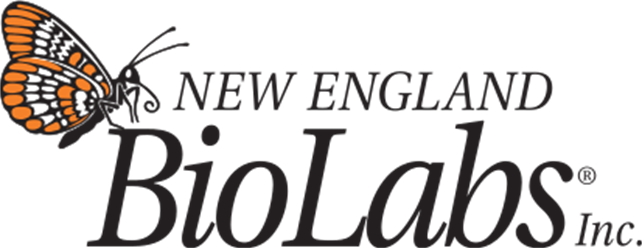
Reagents for Molecular Diagnostics Workflows: Removing Barriers for Assay Developers
Nucleic acid enzymes have long powered the chemistries of molecular diagnostics, and as the field moves to rapid POC and field settings, new demands are placed on DNA polymerases, reverse transcriptases, and other key enzymes. Through protein engineering, discovery, and novel mechanisms for control of enzymatic activities, New England Biolabs is enabling this new generation of diagnostic applications. Methods and reagents for isothermal amplification and RT-qPCR in particular can benefit from enzyme innovation, robust development, and lyophilization and we will present how our approaches to building better tools and services has benefited both core and developing applications of molecular diagnostics.

Novel Enzymatic Solutions for DNA NGS Library Prep: 5mC and 5hmC Detection and FFPE Samples
Identification of 5mC and 5hmC in DNA provides insight into epigenome dynamics. Bisulfite sequencing has commonly been used to detect these modifications, but the chemical-based conversion damages and degrades DNA, introducing bias into the data. To overcome this, we developed an enzymatic approach termed NEBNext® Enzymatic Methyl-seq (EM-seqTM). EM-seq outperforms bisulfite converted libraries in all metrics examined including coverage, duplication, sensitivity, and nucleotide composition. Additional optimizations have also been incorporated into an upcoming EM-seq v2 kit that will streamline the workflow, minimize hands on time, and enable robust methylation profiling on inputs as low as 100 pg.
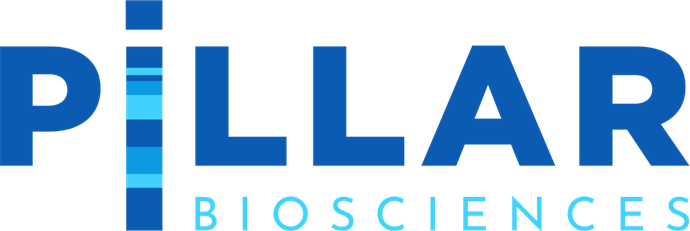
DNA methylation testing can help provide clinicians and researchers with valuable insight into gene regulation and identify potential biomarkers for therapy selection and clinical trial enrollment. NGS testing has provided the ability to interrogate key biomarkers in a cost-effective and high-throughput manner. In this workshop we will explore and present data on the emerging role for highly accurate and sensitive kitted NGS methylation assays in oncology leveraging Pillar Biosciences SLIMamp technology. We will also be presenting new emerging data suggesting an important clinical role for methylation testing beyond HRD score to help to inform patients response to PARPi therapy.

Multiple clinical advantages exist by localizing NGS clinical testing. We will discuss how Pillar’s oncoReveal™ NGS products, powered by SLIMamp® technology and automated workflows provide accurate and actionable results to allow clinicians to make timely and informed therapeutic decisions. The presentations from this workshop cover the rigorous evaluation and clinical validation of Pillar’s solid tumor & liquid biopsy NGS products, automation solutions and how Pillar’s Decision Medicine™ solutions, including FDA approved IVD can enable better, more informed outcomes for everyone, everywhere.
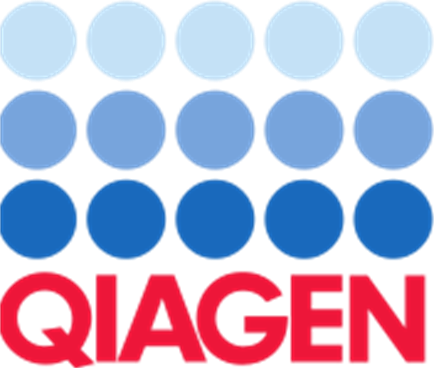
dPCR Technologies Enable Treatment and Response Monitoring in Patients Affected by Solid Tumors
Advancements in molecular analysis technologies enhance understanding of tumor biology, optimizing cancer patient management. Cell-free DNA (cfDNA), found in plasma and body fluids, offers tumor-derived genetic material, an alternative to tissue samples.
The detection of mutations in cfDNA from plasma has been demonstrated to be feasible and easily repeatable. Its implementation in clinical practice allows a better management of patients to select the appropriate treatment, and to monitor tumor dynamics during therapies. The introduction of highly sensitive techniques, including different digital PCR platforms, opened new scenarios in terms of comprehension of tumor heterogeneity and therapeutic strategies.
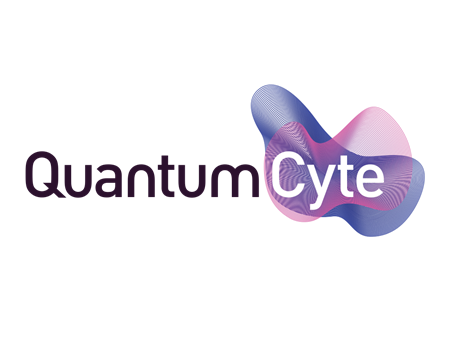
Intelligent Automated Microdissection: The Next Paradigm in Spatial Biology
Quantumcyte has developed a novel targeted spatial biology platform that employs digital pathology applications and integrates with any existing downstream molecular assay. This workshop will discuss the use of the platform to increase the cellular purity in solid tissue samples to improve clinical testing and biomarker discovery.
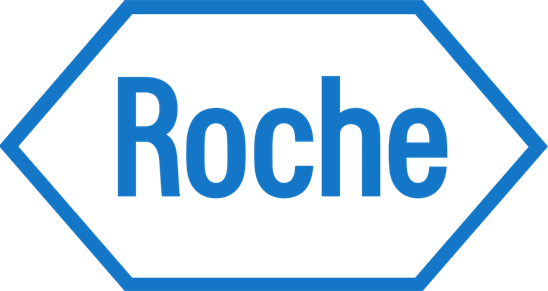
Expanding Sensitivity and Precision of Oncology Assays with Roche Digital PCR and qPCR
During this workshop, our collaborator, GT Molecular, will explain how they took advantage of the Digital LightCycler System’s 6 channels and higher sample volumes to develop sensitive and precise multiplexed oncology research assays. Data will highlight how the Digital LightCycler System enabled GT Molecular to clearly detect multiple targets without sacrificing sensitivity.
During the second part of this presentation, learn about Roche’s new dual-mode (RUO &IVD) real-time PCR system, the LightCycler PRO. This innovative, 7-channel instrument is designed to offer industry-leading multiplexing capabilities plus the high precision, scalability, usability, and analytic capabilities found in Roche qPCR instruments.

We compared theoretical clinical significance data from two CGP solutions – the AVENIO Tumor Tissue CGP Kit (for Research Use Only) paired with navify Mutation Profiler (NMP), and TruSight Oncology 500 (TSO) assay paired with PierianDx Clinical Genomics Workspace.
AVENIO and TSO assays were run on 145 FFPE solid tumour samples (prostate: n=28; breast: 27; colon: 26; lung: 25 [among others]). Variant calls were acquired using manufacturer-provided software. Key variant annotation outputs were variant tiers and ESCAT guideline inclusion per tumor type. AMP/ASCO/CAP tiers were obtained with NMP for AVENIO or PierianDx for TSO. ESCAT inclusion was determined manually.

Automating a Lab Developed Protocol Workflow Using the Cobas Omni Utility Channel
(LDT) plays a vital role in helping healthcare institutions defend against outbreaks and manage disease proliferation. Learn how industry peers have used the cobas omni Utility Channel to automate their solution to deliver innovative, effective, and efficient testing solutions.

Tick Uptick! Tick Populations are Increasing - What Can We Do About It?
Tickborne infections are on the rise and are frequently misdiagnosed due to under recognition of these pathogens and lack of access to quality diagnostic tests. Current serologic methods lack specificity and cannot differentiate past from current infection. Microscopic examination suffers from poor sensitivity and relies on experienced laboratory technologists to recognize potential pathogens. Molecular methods have the potential to provide sensitive and specific detection of tickborne pathogens in a single blood specimen.
In this workshop Dr. Blake W. Buchan, PhD, D(ABMM) will review the changing epidemiology of tickborne infections and share data demonstrating the benefits of NAATs for accurate diagnosis.
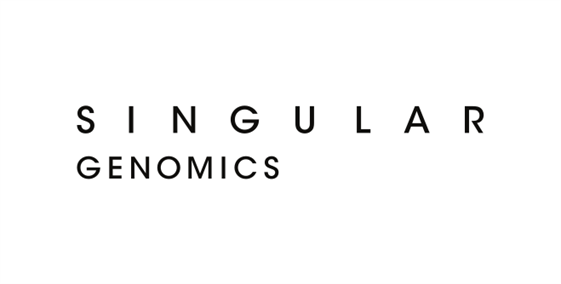
Next-generation sequencing (NGS) has become a foundational tool for both biological research and in-vitro diagnostics, particularly in oncology, immunology, and detection of genetic disorders. Despite its success, limitations of traditional NGS systems include long analysis times and high cost due to batching related inefficiencies.
To address these issues Singular Genomics developed the G4 Platform, an innovative benchtop sequencer that leverages a novel 4-color Rapid sequencing by synthesis (SBS) chemistry with advanced optics and fluidics engineering to provide single-day turnaround times across all applications. By combining fast run times and the ability to run up to 4 flow cells, with 16 independently addressable lanes, the G4 Platform enables highly efficient laboratory operations.
In this presentation Darius Fugere will describe the features of the G4 and showcase data from core NGS applications such as whole genome sequencing, targeted somatic variant detection, methyl-Seq, and bulk and single cell RNA-Seq.

Accelerating Access to Precision Oncology Data with Decentralized MSK Genomic Solutions
SOPHiA GENETICS is collaborating with Memorial Sloan Kettering Cancer Center (MSK) to decentralize their advanced precision oncology tools – MSK-ACCESS® for liquid biopsy and MSK-IMPACT® for comprehensive genomic profiling. By combining MSK’s clinical expertise in cancer genomics, the predictive algorithms of SOPHiA DDM™, and the power of the global SOPHiA GENETICS network, experts hope to expand access to precision cancer analysis capabilities worldwide.
Hear from Michael Berger, PhD (Co-director, Marie-Josée & Henry R. Kravis Center for Molecular Oncology, MSK) about how MSK-ACCESS® and MSK-IMPACT® powered with SOPHiA DDM™ will raise the bar for collective intelligence in cancer research.

How Do You QC? When Good Enough is Not Enough
How do you know you can trust your results? With the rapid advancement in molecular technology, quality control practices are essential to ensure instrument and assay performance. Quality control is a partnership between the laboratorian and the clinician. When this partnership fails, patients suffer. Find out why internal quality control practices should be an essential part of your testing workflow to avoid potential complications and errors stemming from incorrect results. Learn what practices you can put in place to cover your assays and produce quality results to strengthen your lab’s performance, reputation, and ultimately patient care.

Automating and Scaling Sequencing Workflows
As sequencing becomes an increasingly routine tool in laboratories facilitating research, the characterization of diseases and personalized healthcare, the need for efficiency and standardization through automation is increasing. In this workshop we shall look at examples from the oncology space featuring data from Oxford Nanopore Technologies coupled with Tecan automation. There will also be an overview of Tecan’s DreamPrep and MagicPrep solutions for NGS library preparation.

Considerations Surrounding the Implementation of a Complete Syndromic Molecular Workflow for the Identification of Infectious Gastroenteritis Causing Pathogens
Join us in Salt lake City, Utah, at AMP 2023, for a conversation with Amanda Hancock and Greg Behringer from Genesis Laboratory Management, LLC. They will discuss implementing syndromic testing for enteric pathogens, selecting clinically relevant targets like Clostridioides difficile, and incorporating genotypic antimicrobial resistance into panel workflows.

Rapid, Decentralized Genomic Profiling with Automated NGS
Recent years have seen advances in automation that have brought Next-Generation Sequencing (NGS) out of specialized reference laboratories and into local pathology departments. This innovation has allowed biomarker assessment to take place “in-house”, facilitating shorter turnaround times and more efficient use of laboratory resources. During this workshop, hear how one lab with no previous NGS experience was able to adopt a rapid, amplicon-based NGS profiling assay via an automated semi-conductor sequencing system. Also, learn how other institutions are leveraging rapid, end-to-end NGS to augment existing laboratory workflows.

Exploring Molecular Diagnostics: Validating a Multiplex STI Panel with Non-Invasive Sample Types
Join us at AMP 2023, where Dr.Vijay Singh, Vice President of HealthTrackRx, a leading molecular PCR-based infectious disease laboratory, will discuss the development and validation of a laboratory developed, multiplex real-time PCR test for the detection of Chlamydia trachomatis (CT), Neisseria gonorrhea (NG), Mycoplasma genitalium (MG), Trichomonas vaginalis (TV) on two separate PCR platforms. He will show how the test displayed high accuracy, sensitivity, and specificity for the tested pathogens in different patient sample types. In addition, Dr. Singh will discuss the viability of using urine, a non-invasive sample type, for testing STIs.

Rapid NGS for Genomic Profiling of Myeloid Malignancies
The future of molecular profiling requires fast turnaround time for an increasingly large number of genetic biomarkers. Rapid next-generation sequencing (NGS) is helping to accelerate these critical insights by enabling test results to be available in as little as a single day. During this workshop, see how rapid NGS is helping to facilitate swift patient enrollment into a clinical trial aiming to investigate the effectiveness of various therapeutic agents based on genetic testing results. Also, learn how NGS technology is advancing measurable residual disease (MRD) analysis by detecting low-frequency variants with high sensitivity across a broad number of genes simultaneously.

Biomarker Assessment Through Comprehensive Genomic Profiling
As the number of relevant oncology biomarkers has increased over the last decade, so has the use of comprehensive genomic profiling (CGP) for molecular characterization of solid tumors. CGP allows for simultaneous assessment of thousands of variants across hundreds of genes, as well as evaluation of complex biomarkers such as homologous recombination deficiency (HRD), tumor mutation burden (TMB), and microsatellite instability (MSI). In this workshop, hear how one research laboratory is leveraging the Oncomine Comprehensive Assay Plus (OCA+) to perform CGP in-house. Additionally, see results from a multi-site study evaluating performance of OCA+ across several parameters.

Standardized molecular testing is critical for research laboratories to rapidly evaluate to evolving public health needs. Gain insights from an expert led demonstration of Thermo Fisher Scientific workflow integration using Diomni software, that provides value for every workflow in error reduction, shortened time to results, and infectious disease and pharmacogenomics test menu scalability. From sample preparation to qPCR analysis leverage with simplified data management, result tracking, and LIMS/LIS integration. As the world leader in serving science, Thermo Fisher Scientific is committed to provide innovative, and adaptable systems needed for laboratories to expand their molecular testing needs and prepare for the future.

Copy Number Analysis Using a Higher Content Chromosomal Microarray with an Accelerated Workflow
Chromosomal Microarray is currently the first-tier test for identifying genomic copy number variants. To increase the power and speed of CMA, we have developed a new array with significantly increased content and highly accelerated workflow. The CytoScan HD Accel microarray has high-density genome-wide coverage, including increased coverage across >5070 relevant genes. The novel Reference Model built from six unique pre and postnatal tissue types produces sensitive CNV detection with up to 25% maternal cell contamination, and trisomy detection with up to 30% contamination. The highly accelerated workflow enables processing 24 gDNAs to hybridization in just one day.

Efficient and accurate sample analysis plays a crucial role in advancing cancer research and optimizing workflows. This presentation emphasizes the importance of efficient and accurate sample analysis in cancer research and workflow optimization. We explore the benefits of leveraging streamlined, scalable workflows for sample processing and digital PCR analysis. Using a modular approach, researchers simplify sample extraction and integrate with high-throughput digital PCR solutions. Additionally, accurate digital PCR and unique assay design helps enable multiplexing of targets, providing more comprehensive information from limited materials. These advancements help contribute to the progress of liquid biopsy research.

With the continued growth in the field of liquid biopsies, this less-invasive sample type is revolutionizing the way we perceive cancer research, and progression monitoring. Join researchers from The University of Leicester, Leicester Cancer Research Center, sharing their experience in oncology research, including work using liquid biopsy with automation enablement and subsequent molecular analysis.

Pharmacogenomics Research Testing: Areas of Consideration for your Laboratory
In this workshop, Pete Macchia of Thermo Fisher Scientific will discuss the importance of PGx research in testing as well as some of the key considerations of adopting PGx into your testing menu. This includes the importance of analytical validation as well as streamlining workflows to maximize your laboratory efficiencies. Additionally, this workshop will discuss potential areas of growth for the PGx space and how you can capitalize on this for your business.

New Solutions for Fast and Sensitive Nucleic Acid Detection in Inhibitor-containing Conditions
During this session, we will present two new product offers from Thermo Fisher Scientific. First, a new direct RT-qPCR system that can be used to amplify nucleic acid from inhibitor-enriched samples. Our latest data demonstrates new reagents and workflow conditions that work best on saliva and serum samples.
Second, the new Invitrogen Lyo-ready bst DNA Polymerase for (RT)-LAMP isothermal amplification. This best-in-class enzyme demonstrates the highest speed, sensitivity, and resistance to inhibitor performance in LAMP reactions. Together the lyo-ready SuperScript IV reverse transcriptase and lyo-ready RNaseOUT Rnase Inhibitors offer the fastest solution for pathogen diagnostics using RT-LAMP.

High Quality, Automated Oncology ‘Omics Reporting with Velsera’s Knowledgebase
Velsera’s end-to-end clinical NGS support across the wet and dry lab culminates in its clinical reporting automation, which identifies clinically important biomarkers in a patient specimen and conveys the medical meaning of those biomarkers to the reporting physician. In this session, we highlight how Velsera’s Knowledgebase powers these insights based on our expert curation of current medical knowledge and clinical trial opportunities. We also overview how Velsera's platform focuses your effort on the key alterations and highest value therapeutic, prognostic, and diagnostic associations for reporting.

Powerful assay options are available for multiple cancer and inherited disease indications, but few offer out-of-the-box workflow management or clinical reporting solutions. Velsera solves this problem by integrating the best assays on the market with its suite of NGS wet lab orchestration tools, quality and evidence review interface, and interpretation and reporting automation. In this session, we describe Velsera’s robust, turnkey offerings for rapid implementation of your assay of choice, highlighting our customers’ experiences launching their clinical tests.






















